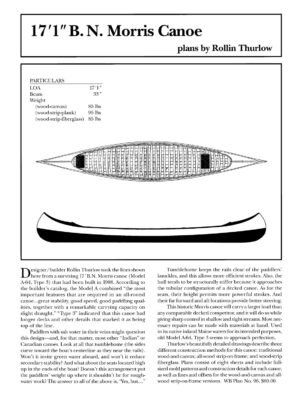
17' 1" B. N. Morris Canoe
The original print version of this article can be viewed as a PDF or purchased from the WoodenBoat Store.
Join to view PDF Purchase B.N. Morris Canoe PlansDesigner/builder Rollin Thurlow took the lines shown here from a surviving 17′ B. N. Morris canoe (Model A-64, Type 3) that had been built in 1908. According to the builder’s catalog, the Morris Model A canoe combined “the most important features that are required in an all-round canoe … great stability, good speed, good paddling qualities, together with a remarkable carrying capacity on slight draught.” “Type 3” indicated that this canoe had longer decks and other details that marked it as being top of the line.
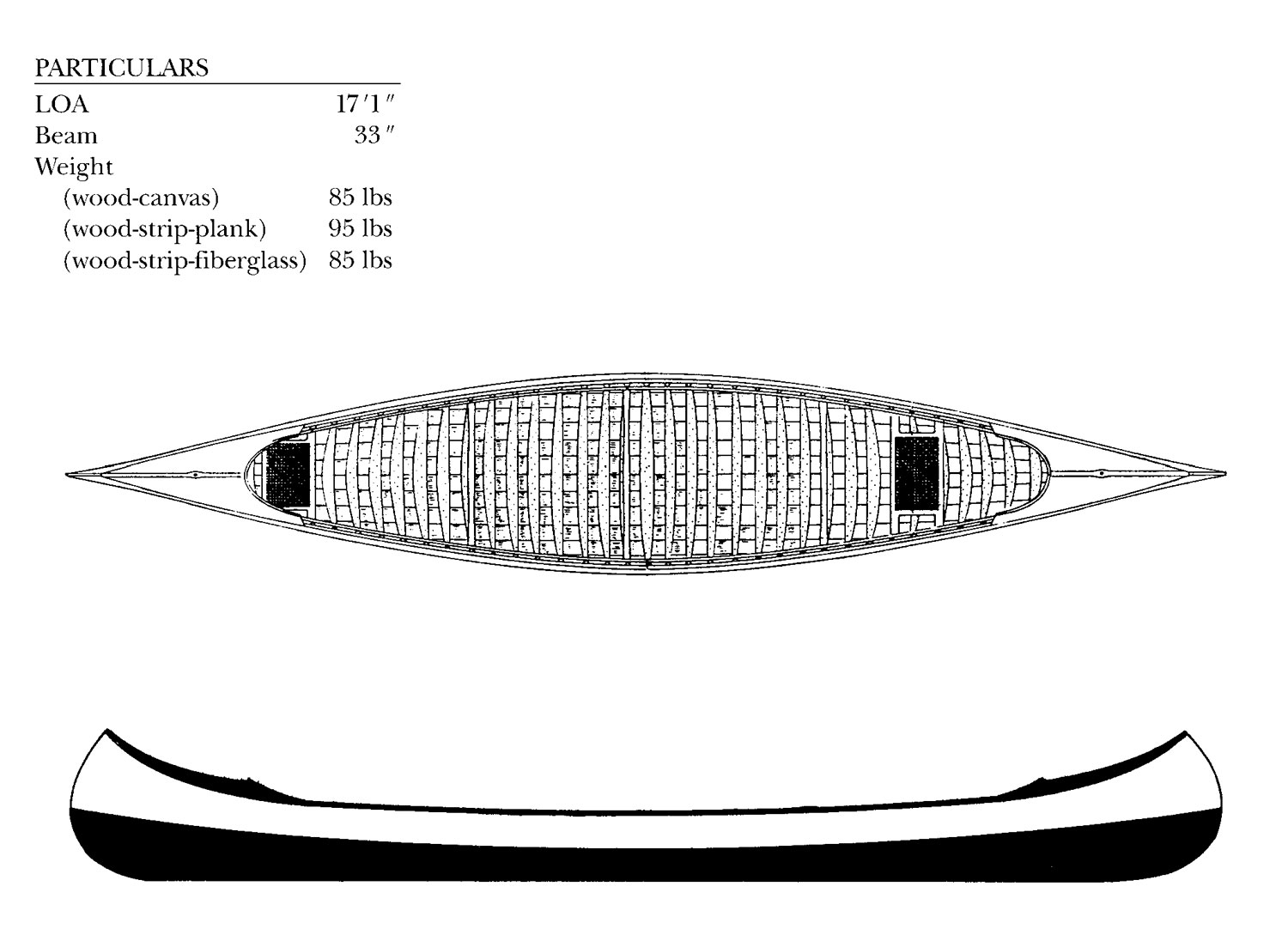
The 1908 Morris A-64, Type 3: perhaps the canoe in which Grandpa courted Grandma.
Paddlers with salt water in their veins might question this design—and, for that matter, most other “Indian” or Canadian canoes. Look at all that tumble home (the sides curve toward the boat’s centerline as they near the rails). Won’t it invite green water aboard, and won’t it reduce secondary stability? And what about the seats located high up in the ends of the boat? Doesn’t this arrangement put the paddlers’ weight up where it shouldn’t be for rough-water work? The answer to all of the above is, “Yes, but….”
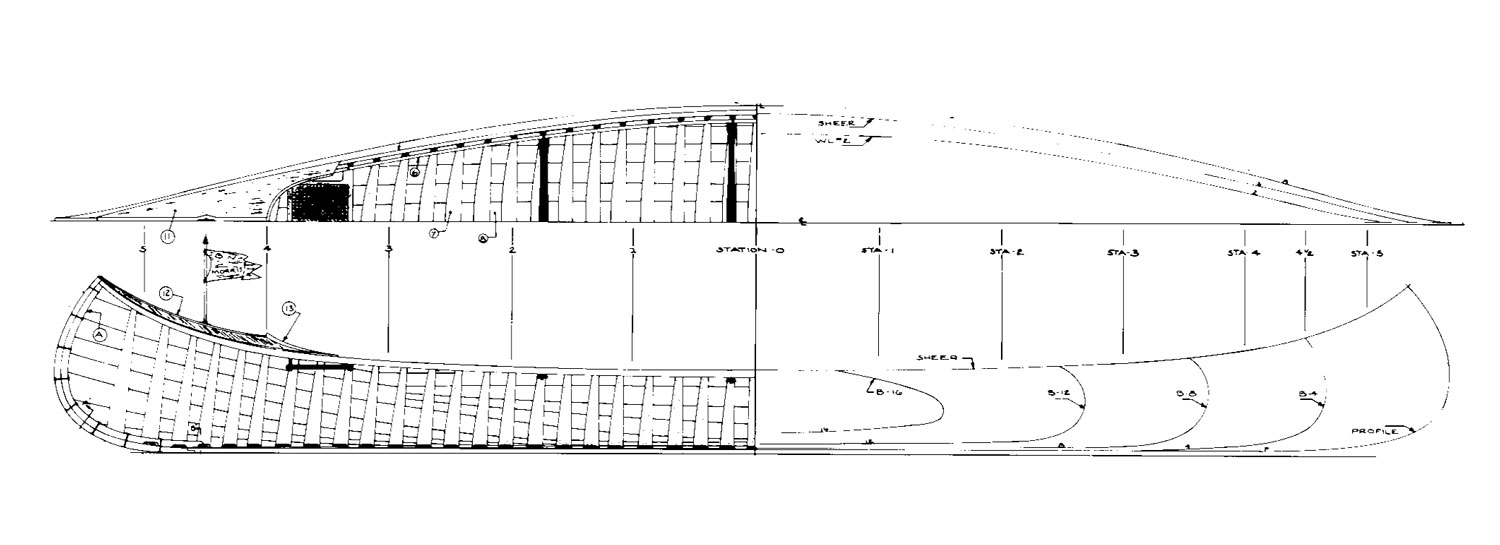
Wood-and-canvas construction. The distinctive lay of the planking allows fast and economical building.
Tumblehome keeps the rails clear of the paddlers’ knuckles, and this allows more efficient strokes. Also, the hull tends to be structurally stiffer because it approaches the tubular configuration of a decked canoe. As for the seats, their height permits more powerful strokes. And their far forward and aft locations provide better steering.
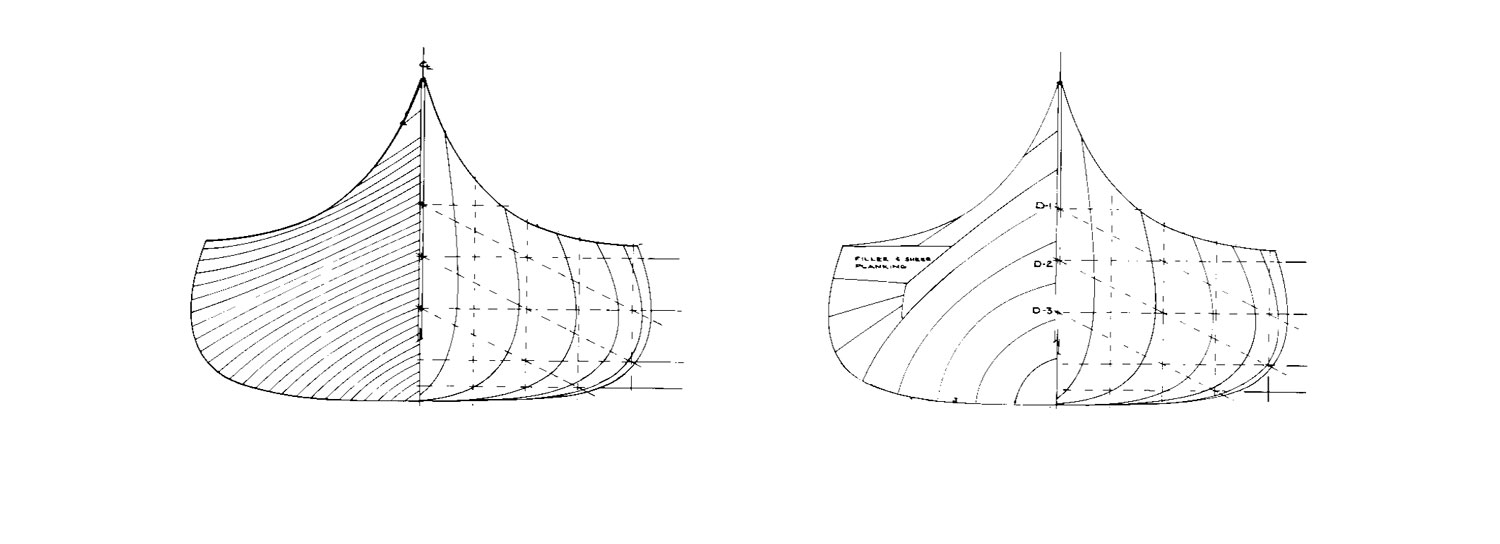
Body plans
This historic Morris canoe will carry a larger load than any comparable decked competitor, and it will do so while giving sharp control in shallow and tight streams. Most necessary repairs can be made with materials at hand. Used in its native inland Maine waters for its intended purposes, old Model A-64, Type 3 seems to approach perfection.
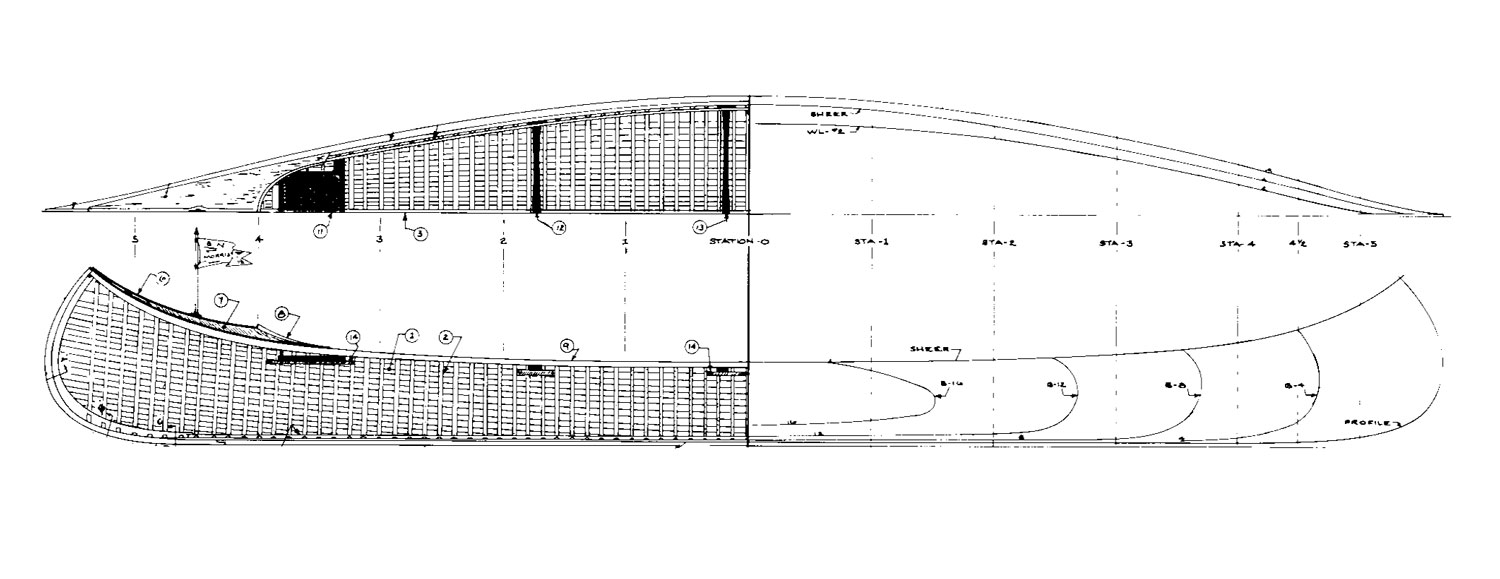
All-wood, strip-on-frame Peterborough construction is elegant and labor-intensive.
Thurlow’s beautifully detailed drawings describe three different construction methods for this canoe: traditional wood-and-canvas; all-wood strip-on-frame; and wood-strip fiberglass. Plans for the B.N. Morris canoe consist of eight sheets and include full-sized mold patterns and construction details for each canoe, as well as lines and offsets for the wood-and-canvas and allwood strip-on-frame versions. WoodenBoat Plan No. 96, $60.00.
17′ 1″ B.N. Morris Canoe Plan Details
DESCRIPTION
Hull type: Round-bottomed Indian-type canoe
Construction: wood-canvas, wood-strip-plank, or wood-strip fiberglass
PERFORMANCE
* Suitable for: Protected waters
* Intended capacity: 1-3
Trailerable or cartoppable
Propulsion: Paddle, pole
BUILDING DATA
Skill needed: Intermediate
Lofting required: No
* Alternative construction: As described
PLANS DATA
No. of sheets: 8
Level of detail: Above average
Cost per set: $60.00
WB Plan No. 96
* See page 96 for further information
Completed B. N. Morris Canoe Images
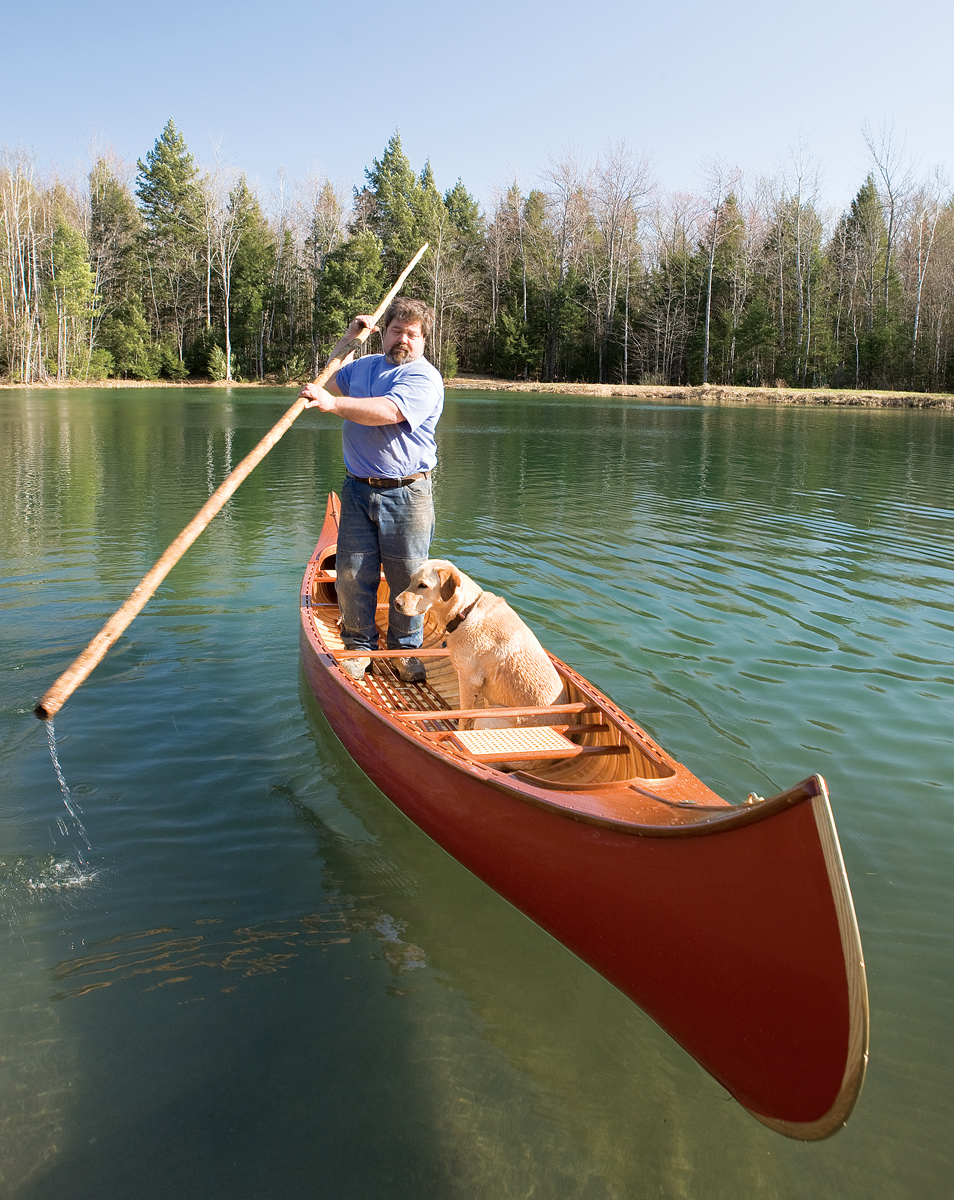
Poling is a popular pastime among canoe enthusiasts.The Morris’s weight combined with her relatively flat bottom gives her good initial stability.This makes her an excellent choice for poling or for general use in calm waters.
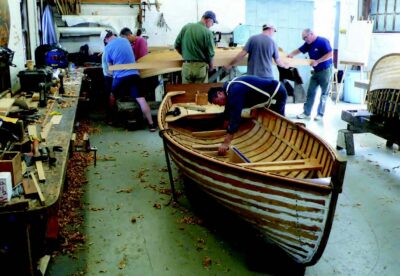
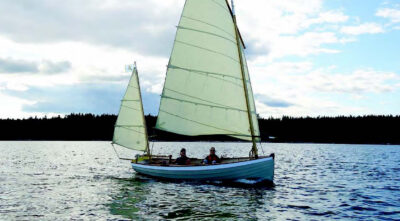
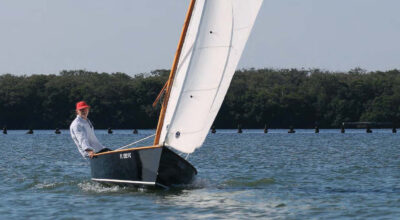
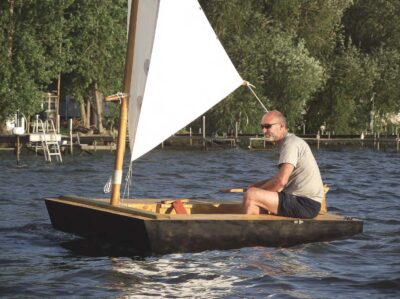
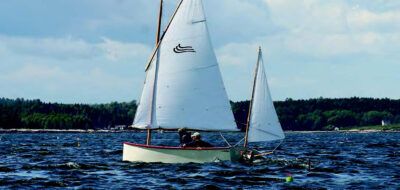
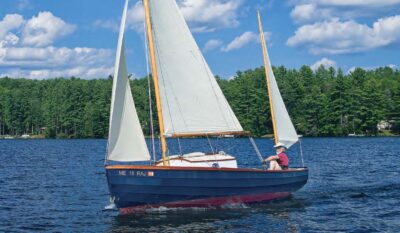
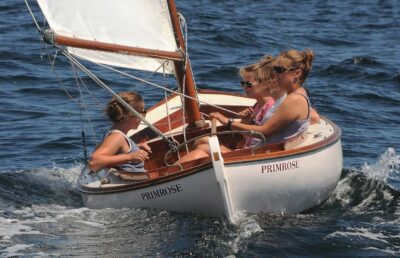
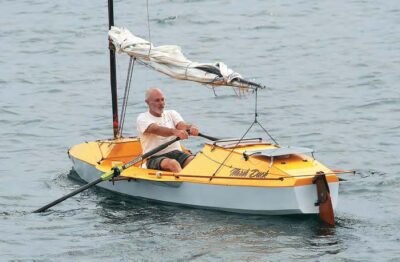
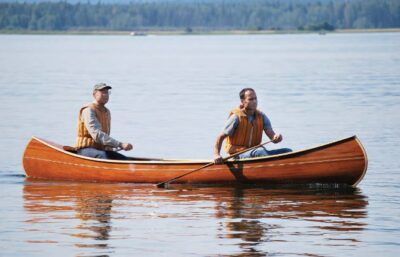
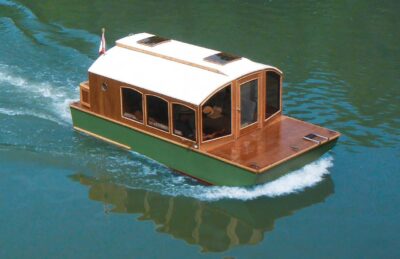
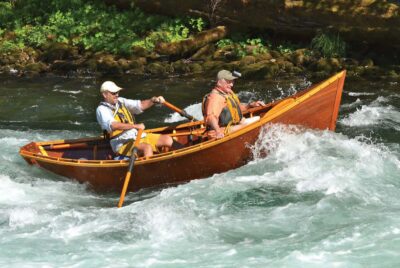

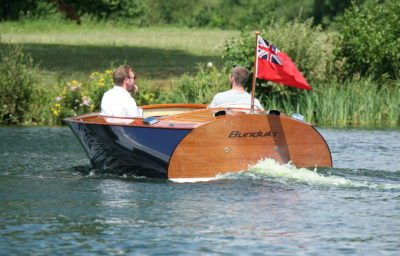
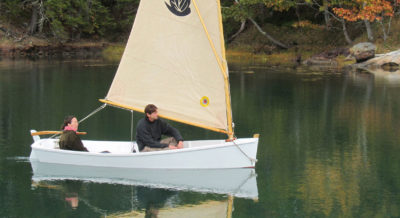
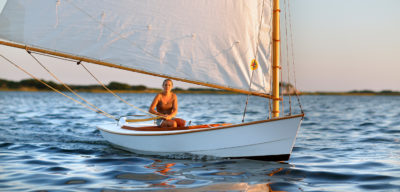
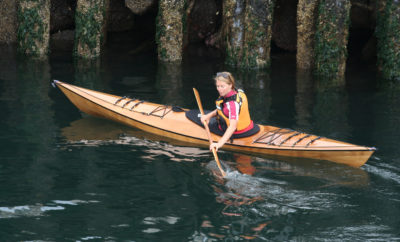
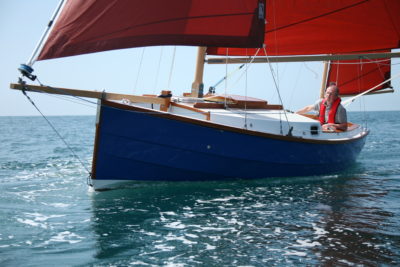
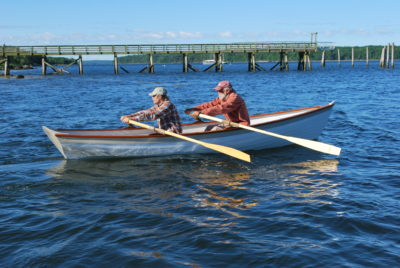
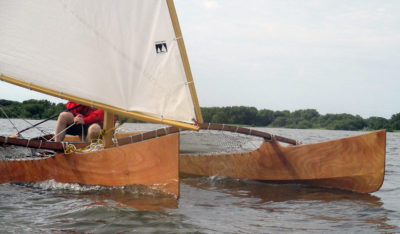
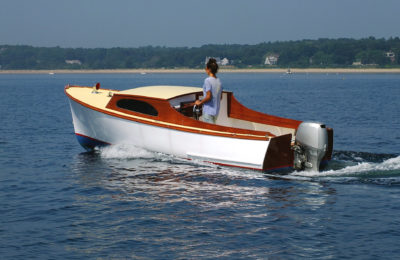
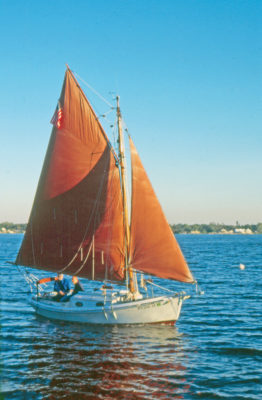
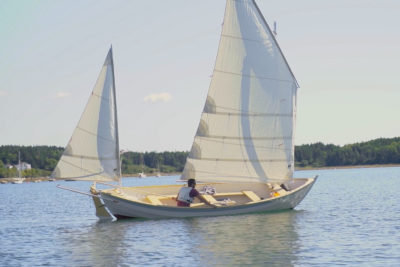
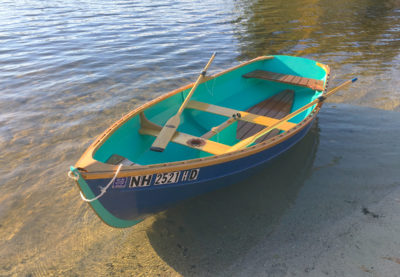
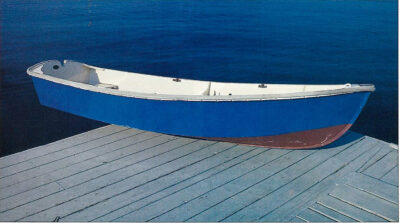
Join The Conversation
We welcome your comments about this article. If you’d like to include a photo or a video with your comment, please email the file or link.